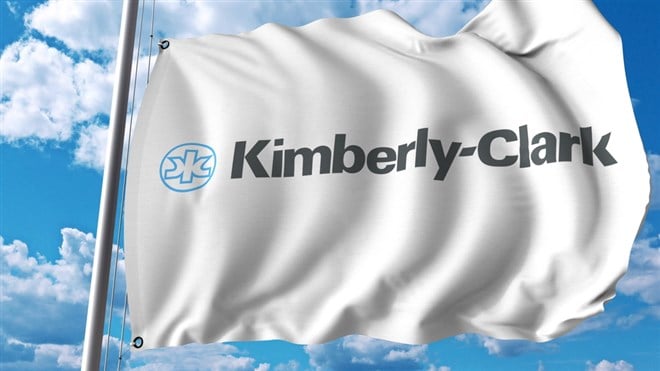
Kimberly-Clark Corporation (NYSE: KMB) witnessed rising costs, slowing sales due to weakness in consumer demand in North America and dollar strength weighing on its global top line during the latest quarter. Increasing inflation and a decline in purchasing power clearly affects how consumers pick and choose products.
As inflation continues to remain hot, customers have chosen substitute products, a crucial factor in why sales volumes have declined in North America even as consumer sentiment continues to rise. Most consumer companies, including Kimberly-Clark products, have increased prices by around 9%, consistent with the CPI figures.
Segment Overview
Here's a quick look at Kimberly-Clark segment performance:- Personal care: Third-quarter sales for personal care came in at $2.6 billion, a decline of 1% year-over-year. Foreign exchange resulted in a 4% decline in sales despite prices that increased by 8% and a product mix that improved by 1% during the quarter. Personal care products tend to be less price sensitive but substitution is a factor that affects volumes. North American volumes fell by 5% during the quarter.
- K-C professional segment: This segment witnessed the fastest growth. Sales increased by 5% and net selling price increased by 14% but volume fell by 5%. The segment is exposed primarily to nonretail consumers, which allows Kimberly-Clark professionals to make up for a lack of volume through increases in prices. Volume is likely to remain muted due to a number of factors, including fewer offices requiring products compared to previous years, as trends such as working from home affect the demand for commercial real estate.
- Consumer tissue segment: Total sales increased by 2% during the quarter, despite the fact that the net selling price increasing by 9%. Consumer tissue continues to remain relatively steady in terms of volume and shouldn’t face too much volatility going forward.
The company’s valuation is relatively modest despite headwinds and is similar to other S&P 500 companies such as Procter and Gamble (NYSE: PG). The current price-to-earnings ratio (P/E) stands at 22 with a dividend of 4%. Investors should remain relatively neutral on the stock.
Kimberly-Clark continues to address slow and low growth by improving product offerings and expanding market geography. This will allow them to introduce newer categories and improve market penetration in Asia, South America and Africa. For example, the company has created a range of Huggies diapers, which will allow them to improve the product category in diapers by offering multiple price points. Category market share is as high as 50% and countries such as China remain central to management’s plan to improve future sales.
Risks largely stem from competition and substitution. Many consumers could switch to competitors' brands if inflation continues to run hot. While Kimberly-Clark’s product range is less price sensitive than other consumer goods, it is still vulnerable to global slowdowns. China reopening should reduce some of the volume issues, but overall, the stock will remain under pressure until economies become more steady, along with inflation.




